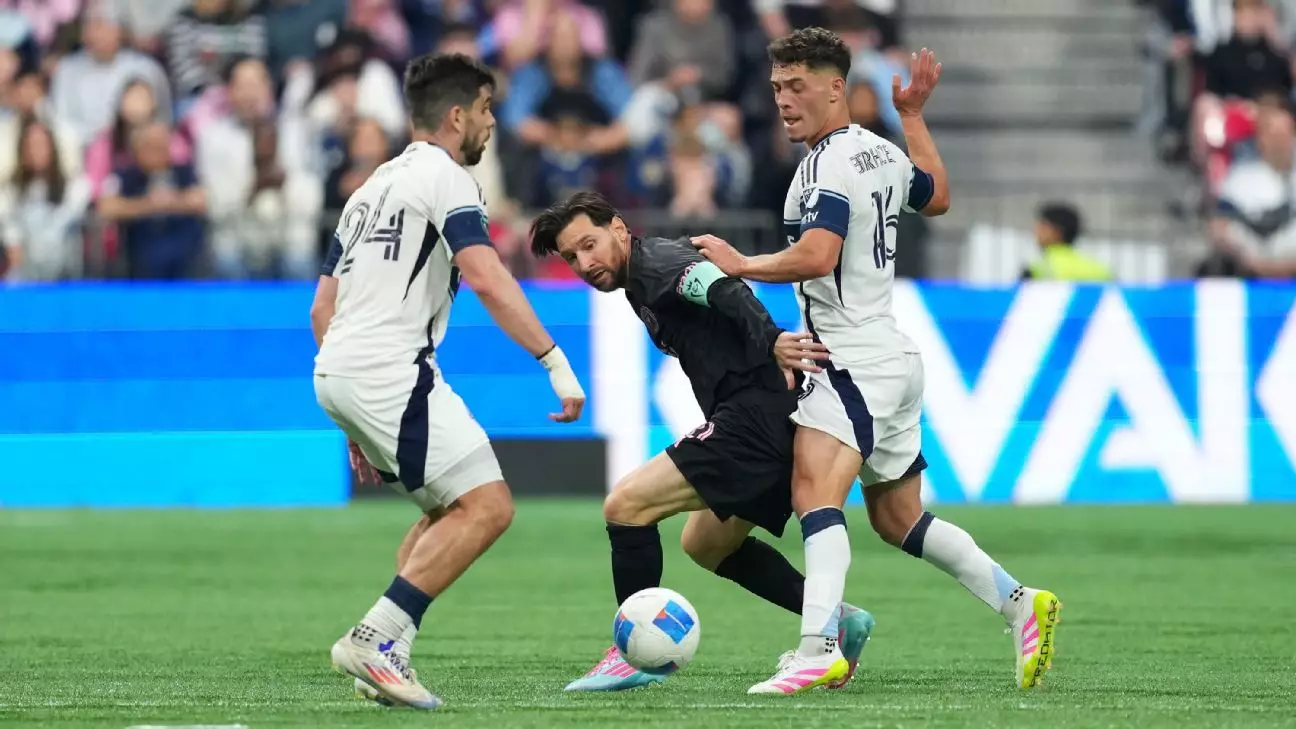In the realm of professional sports, the rapid turnover of games can present both a logistical challenge and a test of a team’s resilience. As Javier Mascherano, head coach of Inter Miami, faces the demanding schedule of major tournaments like the Concacaf Champions Cup (CCC), his strategies are put to the ultimate test. With a mere 72-hour gap between matches including significant travel, the agility and adaptability of the roster become paramount. Certainly, this recent experience has pushed Miami to rethink its approach to preparing for matchups that require not only physical endurance but also strategic foresight. The rushed timeline demands that coaches like Mascherano judiciously manage player fatigue and availability, especially for pivotal figures such as Lionel Messi and Luis Suárez.
Managing Star Players Amid Fatigue
When discussing the potential absence of key players from training sessions, Mascherano highlighted a critical aspect of modern football: the delicate balance between workload and performance. The struggle to maintain peak form amid a punishing schedule is exacerbated when players are susceptible to fatigue, as seen with Messi after the recent encounter against the Vancouver Whitecaps. The synthetic turf presented at the Whitecaps’ stadium can impose additional strain on athletes, a factor that Mascherano understands could affect the overall effectiveness of his squad. The idea of resting or rotating star players—such as managing Messi and Suárez to play fewer minutes—becomes less about choice and more about necessity; the implications are not just tactical but also psychological, as players seek to preserve their health while fulfilling the high expectations of their fans.
Learning from Past Mistakes
Inter Miami is still reeling from a disappointing 2-0 loss to the Whitecaps, which has raised the stakes for their upcoming clash with FC Dallas. Mascherano’s insights illuminate a pressing truth in sports: the consequences of defeat can linger and weigh heavily on team morale. Drawing from the valuable lessons learned during their quarterfinal exit in 2024, the team is keenly aware that progress is not merely about physical execution but also mental fortitude. The strategy pivoted towards prioritizing the next game raises questions about the emotional impact of loss—how it informs decisions and inspires urgency within the team.
In a league where every match can shift the landscape of one’s season, the critical nature of each game increases pressure exponentially. Mascherano’s focus on maximizing MLS standings while simultaneously navigating the CCC demonstrates a keen understanding of competing objectives; a misstep in either arena could result in dire consequences for the team’s aspirations.
Fueling Ambition Through Competition
Mascherano has unapologetically labeled the CCC semifinal as one of the most significant events in the franchise’s young history. Such ambitious labeling not only motivates players but also magnetizes fan support and raises the stakes on a larger scale. This mindset of treating every game with the importance of a final showcases a level of passion and commitment that can inspire the entire franchise, both on and off the pitch. The psychological weight behind these matches—especially for a club working to carve out its reputation in a competitive landscape—cannot be overstated.
In the throes of uncertainty as they adapt to changing conditions, the team must rally around its core principles and maintain focus. This intrinsic motivation is key; a sense of collective purpose can not only bolster performance but also inspire moments of brilliance when the pressure intensifies. Each player knows that they must perform at their best, reflecting not just on their own abilities, but also on their contribution to the burgeoning identity of Inter Miami.
Looking Ahead: The Road to Recovery
As the team prepares to face FC Dallas, the navigation of injuries, fatigue, and fresh strategies outlines an essential narrative of resilience and growth. By drawing on experiences and prioritizing carefully, Inter Miami aims not just to win but also to redefine what it means to compete in a sport that demands both physical prowess and strategic ingenuity. Mascherano’s approach encapsulates the essence of adaptability, fortifying a belief that despite the obstacles, success remains within reach. This ambition underscores a central tenet of sports: in the crucible of competition, transformation emerges as a key to unlocking potential and seizing opportunities, no matter the odds stacked against a team.

Leave a Reply